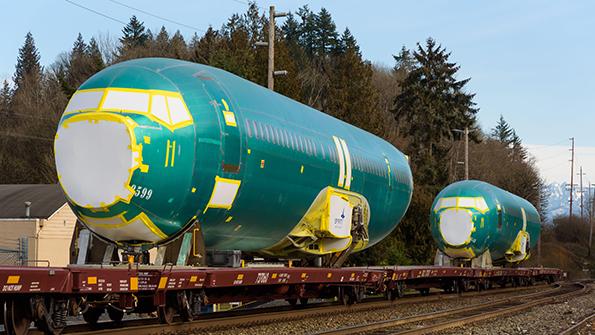Airbus-Boeing Acquisition Of Spirit AeroSystems Is Far From Over

For 19 years, the 737 fuselages transported by train from Wichita to Renton, Washington, bore the Spirit AeroSystems name. Now they will bear only the Boeing name.
Credit: Ian Dewar/Alamy Stock Photo
Of the many ways to look at Boeing’s acquisition of Spirit AeroSystems, consider this: Boeing essentially will pay about $9 billion—including $559 million to archrival Airbus—and possibly considerably more in the end to buy and fix a failing supplier that it owned 20 years before. Compare that with...
Airbus-Boeing Acquisition Of Spirit AeroSystems Is Far From Over is available to both Aviation Week & Space Technology and AWIN subscribers.
Subscribe now to read this content, plus receive critical analysis into emerging trends, technological advancements, operational best practices and continuous updates to policy, requirements and budgets.
Already a subscriber to AW&ST or AWIN? Log in with your existing email and password.



